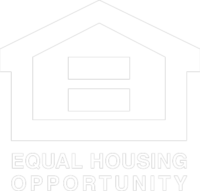By Sally Jones
Jul 31, 2023

Buying a home is the first step to building a sweet financial nest egg. The next step is to grow what’s known as your home equity. Home equity is the difference between the home’s fair market value and its outstanding mortgage balance (or any other liens). In other words, it’s the cash you’d pocket if you sold your home and paid off your loans.
But sometimes, homeowners can walk away with less than zero profits if they have what’s known as negative equity. Simply put, negative equity—also known as getting “underwater” or “upside down” on your mortgage—means you owe the lender more than your home is worth.
So what causes a homeowner to have negative equity, and how can you avoid it? We asked the experts to weigh in.
Who is at risk for negative equity?
No homeowner starts out with negative equity because lenders don’t extend mortgages for more than a home’s value. But negative equity can still happen to anyone who has a home loan. And with more homeowners facing foreclosure lately, unfortunately, avoiding negative equity is something every homeowner should be thinking about.
The most at risk are homeowners with very little property equity. If home values in their area plummet or they are struck by financial hardship and fall behind on payments, some homeowners could find themselves underwater on their loans. (Many homeowners faced exactly this scenario after the 2008 financial crisis when the housing market crashed.)
Luckily conditions today make a repeat of 2008 very unlikely.
“Due to easy access to credit, there was a surge in lenders offering loans to buyers with lower credit scores, or subprime borrowers,” says Chris Ragland, principal at Ragland Capital.
That’s not happening today.
“Laws were passed in 2010 to strengthen verification of a borrower’s ability to repay,” says Ragland.
How does negative equity happen?
Homebuyers today could face negative equity if they have more than one loan on their home, and at least one of the loans has an adjustable interest rate.
“Negative equity more commonly occurs when someone has a first mortgage and then a second mortgage or HELOC on the property,” Jay Garvens, a Colorado Springs, CO-based business development manager for Churchill Mortgage, who has counseled clients through this situation.
“In our current interest rate environment, if the first mortgage—or any subordinate financing—is not on a fixed rate, then the ability to repay it monthly may exceed the borrower’s budget,” he explains.
The homeowner might not be able to repay the loan when rates spike. The mortgage balance will then grow due to late fees. And at some point, the balances could exceed the home’s value.
What is so bad about negative equity?
Being upside down on a home loan can mean homeowners must sell their homes to repay their loans.
Garvens recalls clients with multiple mortgages—including a variable HELOC with a rate that increased from 3.75% to 9.75%. The dramatic increase in the HELOC exceeded the dollar amount they were able to pay.
“And as I counseled them through several options, they came to the realization that they had to sell the property,” Garvens says.
Being forced to sell your home is never ideal, but it’s better than becoming delinquent on your loan.
“Then the danger of foreclosure and a damaged credit rating becomes very real,” adds Garvens. Losing your home to a short sale or foreclosure can ruin your credit for years to come.
Can you reverse negative equity?
It is possible to reverse negative equity, though the tactics might be out of reach for borrowers who are most in trouble. If you are underwater but still employed, financially stable, and not delinquent on your loan, you can take the following steps:
- Continue making timely payments and wait out the market until property values improve.
- Make an extra monthly mortgage payment to help pay down the principal faster.
- Consider upgrades to your home that will increase its value if you do have to sell.
If you are unemployed or an adjustable-rate mortgage has led to an increase in your monthly payments, and you’re falling behind, consider this:
- Rent out your home to cover your mortgage while you live someplace less expensive.
- Consider putting your home on the market.
“My first piece of advice would be to sell the home while you still have equity,” says Garvens. “And use those funds to rent until you can financially reestablish your footing.”
Renting out your home would be a good option only if it brings in enough to cover your mortgage, insurance, and other home expenses.
How to avoid negative equity
The best way to avoid negative equity is to make a large down payment on your home when you purchase it. A larger down payment means smaller monthly mortgage payments.
You can also buy a home that’s well below your budget, so you’ll have extra cash in the bank if you fall on hard times. Being house-rich and cash-poor does not position anyone well for financial strain.
A good rule of thumb is not to spend more than 30% of your pre-tax income on housing—and don’t forget to add in property taxes and private mortgage insurance.
Source- https://www.realtor.com/advice/finance/what-is-negative-equity-and-what-happens-if-you-get-underwater-on-your-mortgage/






